Raptor determines β-cell identity and plasticity independent of hyperglycemia in mice
- PMID: 32439909
- PMCID: PMC7242325
- DOI: 10.1038/s41467-020-15935-0
Raptor determines β-cell identity and plasticity independent of hyperglycemia in mice
Abstract
Compromised β-cell identity is emerging as an important contributor to β-cell failure in diabetes; however, the precise mechanism independent of hyperglycemia is under investigation. We have previously reported that mTORC1/Raptor regulates functional maturation in β-cells. In the present study, we find that diabetic β-cell specific Raptor-deficient mice (βRapKOGFP) show reduced β-cell mass, loss of β-cell identity and acquisition of α-cell features; which are not reversible upon glucose normalization. Deletion of Raptor directly impairs β-cell identity, mitochondrial metabolic coupling and protein synthetic activity, leading to β-cell failure. Moreover, loss of Raptor activates α-cell transcription factor MafB (via modulating C/EBPβ isoform ratio) and several α-cell enriched genes i.e. Etv1 and Tspan12, thus initiates β- to α-cell reprograming. The present findings highlight mTORC1 as a metabolic rheostat for stabilizing β-cell identity and repressing α-cell program at normoglycemic level, which might present therapeutic opportunities for treatment of diabetes.
Conflict of interest statement
The authors declare no competing interests.
Figures
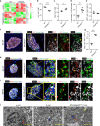
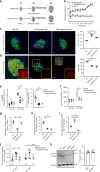
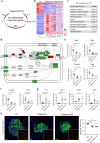
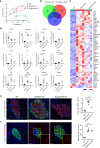
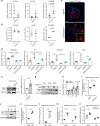
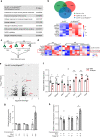

References
-
- Weir GC, Bonner-Weir S. Five of stages of evolving β-cell dysfunction during progression to diabetes. Diabetes. 2004;53:S16–S21. - PubMed
Publication types
MeSH terms
Substances
LinkOut - more resources
Full Text Sources
Medical
Molecular Biology Databases
Research Materials

